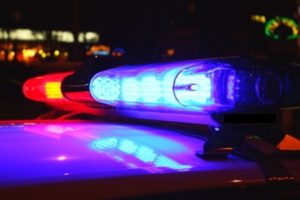 Justice Alito continued in relevant part: BAC tests are Fourth Amendment searches. A warrant is normally required for a lawful search, but there are well-defined exceptions to this rule, including the “exigent circumstances” exception, which allows warrantless searches “to prevent the imminent destruction of evidence.” Missouri v. McNeely, 569 U. S. 141, 149.
Justice Alito continued in relevant part: BAC tests are Fourth Amendment searches. A warrant is normally required for a lawful search, but there are well-defined exceptions to this rule, including the “exigent circumstances” exception, which allows warrantless searches “to prevent the imminent destruction of evidence.” Missouri v. McNeely, 569 U. S. 141, 149.
In McNeely, this Court held that the fleeting nature of blood-alcohol evidence alone was not enough to bring BAC testing within the exigency exception. Id., at 156. But in Schmerber v. California, 384 U. S. 757, the dissipation of BAC did justify a blood test of a drunk driver whose accident gave police other pressing duties, for then the further delay caused by a warrant application would indeed have threatened the destruction of evidence. Like Schmerber, unconscious-driver cases will involve a heightened degree of urgency for several reasons. And when the driver’s stupor or unconsciousness deprives officials of a reasonable opportunity to administer a breath test using evidence-grade equipment, a blood test will be essential for achieving the goals of BAC testing.
Under the exigent circumstances exception, a warrantless search is allowed when “‘there is compelling need for official action and no time to secure a warrant.’” McNeely, 569 U. S., at 149. There is clearly a “compelling need” for a blood test of drunk driving suspects whose condition deprives officials of a reasonable opportunity to conduct a breath test. First, highway safety is a vital public interest—a “compelling” and “paramount” interest, Mackey v. Montrym, 443 U. S. 1, 17–18. Second, when it comes to promoting that interest, federal and state lawmakers have long been convinced that legal limits on a driver’s BAC make a big difference. And there is good reason to think that such laws have worked. Birchfield, 579 U. S., at ___. Third, enforcing BAC limits obviously requires a test that is accurate enough to stand up in court. Id., at ___. And such testing must be prompt because it is “a biological certainty” that “alcohol dissipates from the bloodstream,” “literally disappearing by the minute.” McNeely, 569 U. S., at 169 (ROBERTS, C. J., concurring). Finally, when a breath test is unavailable to promote the interests served by legal BAC limits, “a blood draw becomes necessary.” Id., at 170.
It is not surprise that Justice Alito sided with the prosecution in this case. He is probably the most pro-police member of the Court, especially with regard to Fourth Amendment issues. He was criticized during his confirmation process for authoring a dissent in a federal appeals court case wherein he believed that the strip search of a twelve-year-old girl was justified even though it was not authorized by the search warrant for her father’s home.
